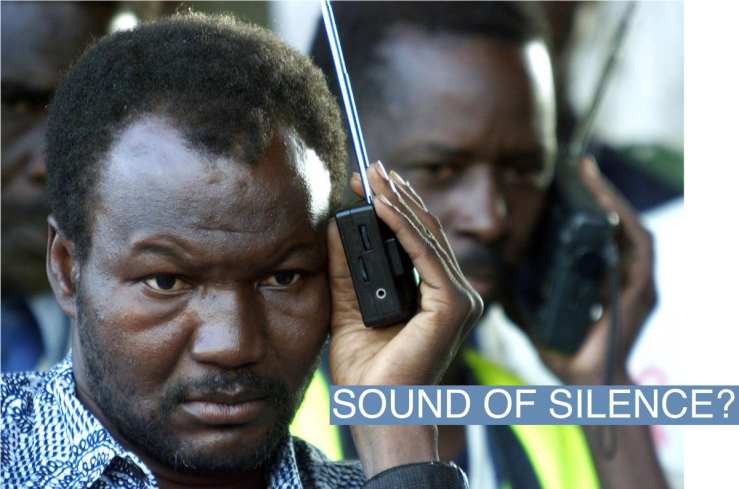The Scoop

The BBC plans to cut dozens of the roles of its Africa Service journalists as it shifts from television and radio to digital distribution, Semafor has learned.
The moves, which will cut nearly half of the BBC Africa jobs in London, include eliminating about 50 of the 130 jobs on BBC Africa, a representative of Britain’s National Union of Journalists, Paul Siegert, told Semafor.
The service’s 60-year-old flagship news and current affairs radio show Focus on Africa will be turned into a podcast. The BBC will shut down Hausa TV, Somali TV, Afrique TV, and shut down some children’s shows, and convert many African language programs to digital only services.
“Audience needs and habits are changing and we know there is huge potential for digital growth across the continent,” said a BBC spokesperson, who said the BBC will continue to serve audiences in 11 African languages and is “totally committed to bringing impartial, independent journalism to people across Africa.”
But some BBC journalists, speaking on condition of anonymity, said the plans ignore the facts that that internet connectivity can be patchy in much of the continent and data is expensive for many people.
The BBC’s audience in Africa is among its largest. Three of the corporation’s 10 biggest audiences by country are in Africa — Nigeria, Kenya and Tanzania. Those three countries have a combined audience of 63 million people.
“People in a corner of northeast Nigeria or Sudan don’t have a smartphone but they do have a radio with batteries,” said one BBC insider who opposes the plans.
The BBC, which last week celebrated its centenary, had for decades been a source of trusted information in Africa, particularly in countries where governments can influence local media through intimidation, punishments or simply taking them off air.
“Governments can stop access to the internet,” said the NUJ’s Siegert, “whereas if you know if the BBC is broadcasting on a shortwave radio frequency, it’s far more difficult for governments to interfere with that.”
Siegert said he joined BBC journalists from the African service and other parts of the corporation at a meeting with lawmakers at Britain’s parliament last week. They appealed for parliamentarians to back their campaign calling on BBC management to reconsider the plans. Twenty-five lawmakers have signed a motion calling for BBC cuts to be debated in parliament.
BBC Africa journalists described an air of despondency about the extent of job cuts. “It’s a sad place to be working right now because people are dejected and scared,” said one.
Alexis’s view
The World Service has long been a way to get rigorously sourced information from an international news organization in countries where, pre-internet, mutinying soldiers could mount a coup by taking over the state radio and TV stations.
The shift to digital often doesn’t make sense for an African audience because it assumes the internet is readily available. Constant access is unimaginable for many because it’s too expensive and, in some areas, coverage is poor. This is particularly true of people in rural communities who rely on cheap radios for news and current affairs. Millions of people will miss out. There is little hope that local news alternatives will suddenly amass the funds or political clout to fill the void with reporting that’s free of influence from vested interests.
I must also confess my personal bias. I worked on the Focus on Africa radio show around a decade ago, producing stories that ran on its three daily live broadcasts for nearly two years. And my father owes his life to the BBC. In 1979, as a minister in Ghana’s government attending a conference overseas, he learned of the coup mounted back at home by listening to a World Service broadcast.
He didn’t go back.
Yinka’s view
While job cuts anywhere are always bad for the people involved, when it comes to the future of Africa’s media landscape the prospect of the BBC moving more of its Africa programming from London to the continent offers some upside.
Much of the debate around African media coverage in recent years has been about the need for more homegrown media houses. To do that you need well-trained staff and few places have done as much for developing world-class African media talent like the BBC has in Africa.
Or as Dele Olojede, a Pulitzer Prize winner for international reporting, told me, the BBC “has trained generations of journalists” and people should not be overly sad if its African coverage is cut back as it creates new opportunities. “Even if the BBC left Africa altogether, they have planted the seeds for new forms of life to come up, and more than ever Africans are telling their own stories with their own platforms.”
The View From Stellenbosch, South Africa
Despite its colonial roots, the BBC has had a unique place in Africa’s media landscape and history standing up for human rights and countering authoritarianism in more recent decades, said Olojede, the writer and host of Africa in the World festival in Stellenbosch. “Even in the worst eras of bad and perfunctory western media coverage of Africa, the BBC has always been more invested in the continent than any of the others,” he said.
Notable
- The Observer’s editorial page pulled no punches when the BBC World Service cuts were first announced a month ago, blaming Conservative Party governments. As the left-leaning paper sees it, these cuts were forced upon it by ministers “who dislike the national broadcaster more than they value the national interest.” The editorial added: “The BBC, and the World Service in particular, represents important soft power tools that are the envy of other democracies. They perform an important role in projecting Britain’s priorities and values abroad.”

